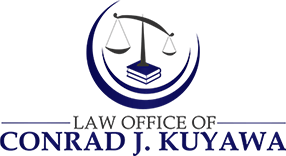
Premises Liability
Pittsburg Premises Liability Attorney
Hear Directly From Our Satisfied Clients About Our Services
In the US, citizens have the right to a reasonable level of safety and security. Laws that require developers and business owners to construct safety features fall under certain local, state, and federal statutes. When property developers and business owners fail to provide safe and secure access, bystanders and innocent visitors can get hurt. If you found yourself on the wrong side of a personal injury claim, The Law Office of Conrad J. Kuyawa will get behind you all the way.
Premises liability includes everything from aggressive security guards to shady building construction. The premises liability attorneys at The Law Office of Conrad J. Kuyawa have years of experience at holding property owners and commercial establishments liable for their negligence. If you have been injured on the premises of someone else, our friendly legal team wants to hear your story.
We understand that you may be suffering from physical and emotional pain. Talking to someone who has your best interest at heart will make you feel comfortable and cared about. Please call us today for your free consultation.
Premises liability cases can cover a diverse range of areas. The Law Office of Conrad J. Kuyawa will help you analyze your situation and see how we can best bring your case forward.
Here are some examples of situations where you would need a personal injury attorney.
- Nightclub incidents
- Slip and fall cases
- Staircase accidents
- Aggressive or insufficient security guards
- Electricity and electrocution
- Defective sidewalks
Some Common Injuries that signal you have a premise liability case are:
- Broken bones
- Electric shocks
- Burns
- Spinal cord injuries
- Neck injuries
- Head injuries
Never keep your suffering to yourself. The Law Office of Conrad J. Kuyawa is here to help you win compensation in return for your pain and suffering.
Understanding Premises Liability: What You Need to Know
Premises liability is a legal concept that holds property owners and occupiers responsible for accidents and injuries that occur on their property due to unsafe conditions. This area of law is grounded in the principle that property owners have a duty to maintain a safe environment for those who enter their premises. If they fail to do so and someone is injured as a result, they can be held liable for the damages.
Understanding the Duty of Care in Premises Liability
Property owners or occupiers owe a duty of care to ensure that their property is reasonably safe. The extent of this duty varies depending on the status of the visitor: invitees, licensees, or trespassers.
- Invitees: These are individuals who enter the property for business purposes, such as customers in a store. Property owners owe the highest duty of care to invitees, which includes regularly inspecting the property and fixing or warning about hazards.
- Licensees: These are social guests or others who enter the property with the owner's permission but not for business purposes. The duty of care here is to warn about known dangers that the visitor might not discover on their own.
- Trespassers: These are individuals who enter the property without permission. Generally, property owners owe the least duty of care to trespassers, primarily to avoid willful or wanton harm. However, there are exceptions, such as the attractive nuisance doctrine, which protects child trespassers.
Premises liability cases can arise from various hazardous conditions, including:
- Slippery floors or walkways
- Poor lighting
- Broken or uneven stairs
- Faulty handrails
- Unsecured rugs or carpets
- Exposed electrical wiring
- Inadequate security leading to criminal acts
- Hazardous materials or substances
Steps to Prove Your Premises Liability Case:
To establish a premises liability claim, the injured party (plaintiff) typically must prove:
- Existence of a Hazardous Condition: There must be a dangerous condition on the property.
- Knowledge of the Hazard: The property owner knew or should have known about the hazardous condition.
- Failure to Remedy or Warn: The property owner failed to fix the hazard or provide adequate warning.
- Causation: The hazardous condition directly caused the injury.
- Damages: The plaintiff suffered actual damages (physical injury, financial loss, etc.) as a result of the hazardous condition.
Property owners may raise several defenses, such as:
- Comparative Negligence: Arguing that the injured party was partially or fully responsible for their own injury.
- No Knowledge of Hazard: Claiming they were unaware of the dangerous condition and had no reasonable way of knowing about it.
- Open and Obvious Hazard: Asserting that the hazardous condition was so apparent that the injured party should have noticed and avoided it.
Testimonials
See What Our Clients Have to Say
What You Can Expect With Us
Why Choose the Law Office of Conrad J. Kuyawa?-
Step-by-Step Support
-
Personalized Service and Attention
-
Millions Recovered for Our Clients
-
Work Directly With Your Attorney

